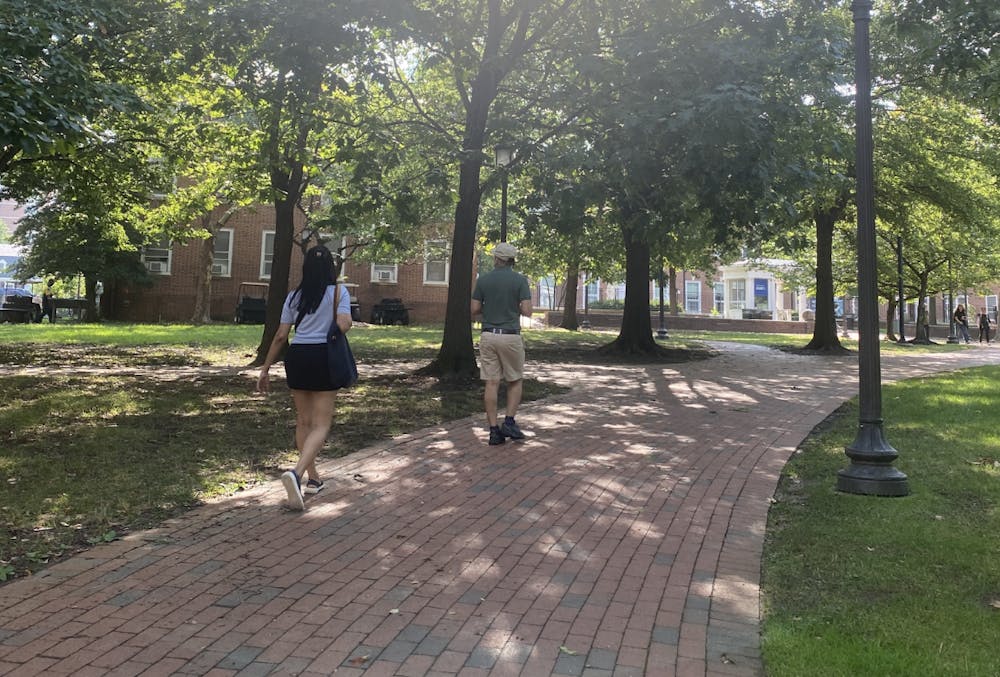
The first time I feel the freshman blues, it’s 7 p.m. in Baltimore, but 5 a.m. back home. My phone lights up with a text from my mom. It’s nothing fancy, just a photo of her standard morning cup of chai (tea). She has always been an early riser. I know she doesn’t expect a reply. She just wants me to see something familiar, to be reminded of what home feels like.
The second time I feel it is when I FaceTime my dad. He’s lit up the Diwali lights along the balcony, strings of yellow and gold shimmering against the darkness. The call is grainy; the Wi-Fi keeps cutting out, but I can still hear the celebration behind him: neighbors talking, firecrackers hissing, a radio playing an old 70s song. Here, it’s just another cold fall night in Baltimore. The distance suddenly feels enormous.
When your family lives in a different time zone, you learn to measure Home not by distance, but by hours. I’ve learned that “good morning” can arrive when the sky outside my dorm is pitch black, and “how was your day?” might come before mine has even begun. There’s a strange intimacy in it, this time-delayed love. The moments overlap just enough to remind you that somewhere, someone you love is thinking of you, even if you can’t quite occupy the same moment in time.
At first, I tried to fight the clock. I’d stay up late for calls, skip meals to catch a friend online, keep two clocks running on my desk like I could somehow live in both places at once. But the truth is, you can’t. You learn to let time do its thing — to stretch, to warp, to create space between where you are and where you came from.
But sometimes, the guilt slips in. Like the night I couldn’t call my sister in time because I had fallen asleep, exhausted after studying in Gilman until my brain was numb. For years, it was our small tradition: wishing her good luck before every exam, my way of being the older sibling from afar. Missing it feels heavier than I’d expected.
There’s a loneliness that settles into the corners of your day when you live out of sync with home. You walk back from class at dusk, and the campus glows with the warmth of students and academia: people laughing outside Mudd, friends heading to the FFC for dinner. And yet, in that same moment, you know your parents are just starting their morning. You imagine the kettle whistling, the smell of breakfast, the faint clatter of spoons against mugs. Life continues there as it does here, but you exist somewhere in between.
I used to think homesickness was about missing a place. But really, it’s about missing a time. It means learning to miss things quietly. You miss family dinners that happen while you’re in class, holidays that fall on a Tuesday midterm, and the joy of existing in the same moment as the people you love. It also means learning how to build a new sense of belonging in this borrowed hour, a new home for yourself in a college town that wakes up when your family is falling asleep.
That’s the hardest part about distance: it teaches you to live with unfinished moments. There will always be calls you miss, messages you reply to too late and celebrations you only see through a screen. But above it all, you learn to live with forgiveness. Forgiveness of self and others, because at the end of the day, everyone is trying to tell their story. Because being far away doesn’t mean you’re any less present in the lives of the people who matter.
In the evenings, I walk back from Gilman, I stand outside AMR III, watching the sunset. I’ll watch the sky shift to the same shade of orange I know my parents are seeing, 10 hours ahead. For a brief second, the world feels folded in half, and time zones don’t matter. I’m home, and I’m here. All at once.
Samika Jain is a freshman from Mumbai, India, majoring in Molecular and Cellular Biology. Her column holds onto things she probably should’ve forgotten by now, but she writes them anyway.





